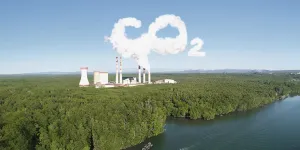By Smanachan Buddhajak |
The Thai government's plan for a carbon credit programme to achieve carbon neutrality has raised concerns among the civil society that it will lead to a new wave of conflict over land rights and that forest area will be handed over to the private sector.
By Kannikar Petchkaew |
COP28 opens tomorrow (30 November) in Dubai, and carbon credit is still on the agenda. Thailand, which has pledged to become a carbon-neutral country by 2050 and carbon-zero by 2065, is turning towards a carbon credit market while its major corporations explore low-carbon businesses. However, local communities are skeptical and have raised concerns that their land and natural resources would be exploited by private businesses selling carbon credits.
By Kannikar Petchkaew |
From 30 November - 12 December, world leaders will gather in Dubai for the 2023 United Nations Climate Change Conference, or COP28 to discuss the climate crisis. But where is Thailand in this issue? The country has turned to the carbon credit market on its road to carbon neutrality and net zero, but the civil society has questions about its effectiveness and are concerned about the market being taken over by corporations.
By Greenpeace Thailand |
At the opening ceremony of the 2nd Thailand Climate Action Conference, Greenpeace Thailand activists launched a series of protests, holding a banner with a message ‘Our forest ≠ Carbon credit, Stop Greenwashing’, and projecting a laser message that read ‘Stop forest carbon offset, Real-Zero Not Net-Zero’ directed at the country’s new prime minister Srettha Thavisin and the Thai government to decouple its climate policy from false solutions like carbon offsetting scheme.




